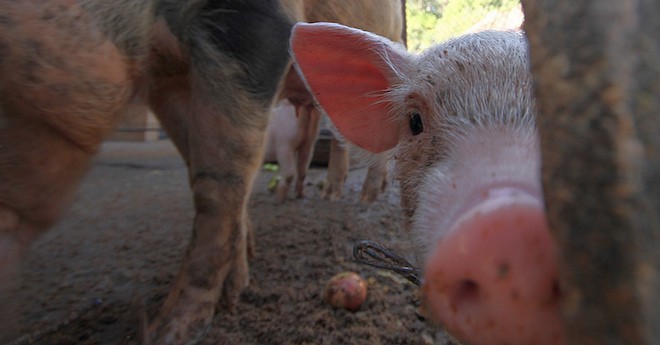
Image: ICStefanescu (CC), Flickr
A troubling and also kind of odd story came out of Denmark this weekend. In a court proceeding, a microbiologist has disclosed that three residents of the country who had no known connection to farming died of MRSA infections caused by ST398, the livestock-associated strain of drug-resistant staph that first appeared among pig farmers in the Netherlands in 2004 and has since moved through Europe, Canada and the United States.
If the report is correct — and sources have told me it is, but I’ve seen no data to confirm it — it reinforces the concern that bacteria which become resistant because of antibiotic use on farms can move off farms and affect the health of people who have no connection to farming.
Livestock MRSA has always one of the best cases for establishing that, because the drug to which it showed the greatest resistance, tetracycline, wasn’t used against human MRSA in the Netherlands, but was used routinely on farms — so the only place the strain could have picked up its unique resistance pattern was in pigs. (Here’s my long archive of posts on pig MRSA, dating back to my book Superbug where the story was told for the first time.)
[Read more…]



